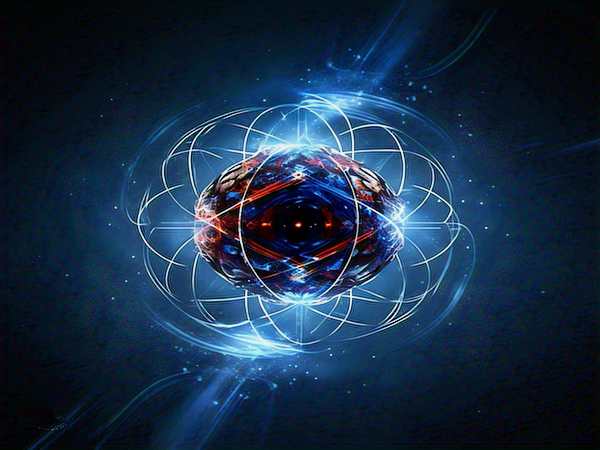Imagine a universe devoid of the familiar solidity of objects, a world where everything floats around weightless. This was the prevailing theory until the groundbreaking discovery of the Higgs Boson at CERN, the European Organization for Nuclear Research.
The Quest for the “God Particle”
For decades, physicists had theorized about the Higgs Boson, a subatomic particle responsible for giving mass to all other particles. Nicknamed the “God particle” by Nobel laureate Leon Lederman, its existence remained a mystery, a missing piece in the puzzle of the universe’s fundamental building blocks.
The Large Hadron Collider: A Smashing Success
Enter the Large Hadron Collider (LHC), a massive particle accelerator nestled deep beneath the French-Swiss border. This marvel of engineering smashes protons (hydrogen nuclei) together at nearly the speed of light, recreating the conditions of the Big Bang. The resulting subatomic debris is then analyzed by giant detectors called ATLAS and CMS, searching for clues to the Higgs Boson’s existence.
A Glimpse of the God Particle
The breakthrough came in the form of tantalizing data from ATLAS and CMS. While the Higgs Boson itself is too fleeting to be directly observed, scientists analyzed the decay products of this elusive particle. The results were a revelation – a strong indication of the Higgs Boson’s existence with a mass roughly 125 times that of a proton.
Filling the Gap in the Standard Model
This discovery wasn’t just about finding one particle. It was about completing the Standard Model, the foundational theory of particle physics. The Higgs Boson explains why particles have mass, a property crucial for forming atoms, molecules, and ultimately, everything we see around us. Without mass, the universe would be a formless expanse.
Beyond Practical Applications
While the Higgs Boson discovery may not directly impact unemployment rates or wars, its significance lies in the fundamental understanding of our universe. It’s akin to deciphering a cosmic language, revealing how particles interact and how the universe came to be.
The Higgs Boson: A Universe Explained
The LHC’s findings haven’t painted the whole picture yet, but they’ve opened a new chapter in physics. As scientists delve deeper into the properties of the Higgs Boson, we inch closer to a comprehensive understanding of the universe and our place within it.

